Gwlad y Gân/Land of Song, Wales Millennium Centre, Cardiff | reviews, news & interviews
Gwlad y Gân/Land of Song, Wales Millennium Centre, Cardiff
Gwlad y Gân/Land of Song, Wales Millennium Centre, Cardiff
WOMEX is welcomed to Wales by Cerys Matthews and a captivating national songbook
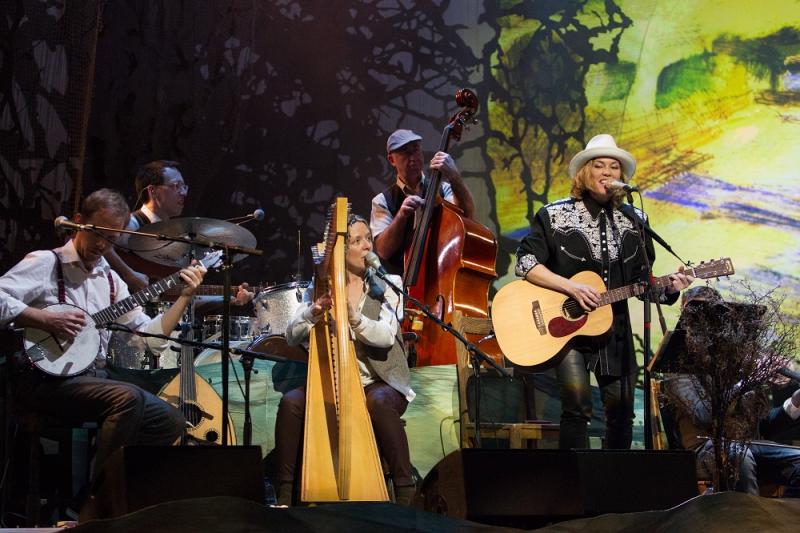
When the term “world music” became a category in record stores, it’s doubtful that triple harps, cerdd dant and canu plygain would have been thought to belong under the umbrella. And yet here they were on display at WOMEX. The annual world music expo has put down roots in Cardiff this year, and to bid welcome to the delegates Cerys Matthews hosted a celebration of traditional Welsh music under the title Gwlad y Gân/Land of Song.
If Welsh folk music is less widely known abroad than its Irish or Scottish counterparts, that is largely down to historical forces: the lack of a significant Welsh diaspora, and the hermetic survival of a language which the Anglophone world continues to view as a forbidding rampart. The neo-bard Twm Morys opened the night by thumping out an assertive cynghanedd (poetry in strict meter), thwacking the stage with a staff and filling the room with percussive North Walian sounds. WOMEX delegates will have got the message: the sound of Welshness is not all pretty country airs.
It wasn’t all about giving a voice to bucolic sounds from the dusty archives
From an island placed downstage right, Matthews fronted the concert at the heart of a band comprising violin, harp, guitars, double bass and drums, though the resourceful fiddler Patrick Rimes also blew into an assortment of pipes, and harpist Gwenan Gibbard served up haunting vocals. With the rhythm section pulsing along, light-footed songs like “Dadl Dau” (reportedly a favourite of Henry V, whose widow of course married a Welshman called Owen Tudor), “Wrth Fynd efo Deio i Dywyn”, about a cross-country trip, and “Cyfri’r Geifr”, an accelerating ditty about counting goats, produced a Welsh variant of foot-stomping country.
It fell to other guest performers to suggest a more introspective soundscape. Highlights included Georgia Ruth singing the lovely “Ar Ben Waun Tredegar”, DnA duetting hauntingly on fiddle and harp, a ravishing a cappella medley of canu plygain (bidding songs) performed from a balcony by Siân James, Arfon Gwilym and Sioned Webb, and a captivating display on the triple harp by duelling duet Robin Huw Bowen and Rhaiain Bebb. But it wasn’t all about giving a voice to bucolic sounds from the dusty archives. To confound those who have a narrow view of what male voice choirs get up to in the Valleys, the boys from Treorchy hollered a Zulu chant, while Indian-Welsh band Ghazalaw stretched hands across cultures with persuasive songs in Welsh and Urdu.
 The stage, fringed by forest-like fronds with a screen displaying evocative black-and-white images of Welsh heritage, was left bare for performers to come and go. Traditional dance group Dawnswyr Nantgarw in clogs and (for the women) tall black hats presented folk tap as a kinetic and free-wheeling form of self-expression. Dancers from Ballet Cymru whirled and leapt and flew about the stage to “Cân Merthyr”, an accidentally disparaging song about Merthyr Tydfil, and the high-speed “Migldi Magldi”. Though polar opposites, the two dance troupes then teamed up (pictured above right) to respond to Matthews’ tongue-in-cheek version of the old Llanelli rugby song “Sosban Fach”. Hats off to gravity-defying soloist Daisuke Miura.
The stage, fringed by forest-like fronds with a screen displaying evocative black-and-white images of Welsh heritage, was left bare for performers to come and go. Traditional dance group Dawnswyr Nantgarw in clogs and (for the women) tall black hats presented folk tap as a kinetic and free-wheeling form of self-expression. Dancers from Ballet Cymru whirled and leapt and flew about the stage to “Cân Merthyr”, an accidentally disparaging song about Merthyr Tydfil, and the high-speed “Migldi Magldi”. Though polar opposites, the two dance troupes then teamed up (pictured above right) to respond to Matthews’ tongue-in-cheek version of the old Llanelli rugby song “Sosban Fach”. Hats off to gravity-defying soloist Daisuke Miura.
This was a rare moment in which the song sheet included flagpole tunes known far beyond Welsh borders. On each occasion that an old favourite cropped up Matthews, a witty and engaging mistress of ceremonies, niftily subverted expectations. “Men of Harlech”, with the Treorchy Male Voice Choir, was delivered with a twist of Nashville, and the climactic hymn “Calon Lân” was sung by a young choir from Mount Stuart School in Cardiff Bay featuring every conceivable ethnicity. Cardiff Bay, lest anyone forget, always was a melting pot, and so was this spirited and cheerful evening of Welsh world music.
Click on the images to enlarge
rating
Explore topics
Share this article
The future of Arts Journalism
You can stop theartsdesk.com closing!
We urgently need financing to survive. Our fundraising drive has thus far raised £49,000 but we need to reach £100,000 or we will be forced to close. Please contribute here: https://gofund.me/c3f6033d
And if you can forward this information to anyone who might assist, we’d be grateful.

Subscribe to theartsdesk.com
Thank you for continuing to read our work on theartsdesk.com. For unlimited access to every article in its entirety, including our archive of more than 15,000 pieces, we're asking for £5 per month or £40 per year. We feel it's a very good deal, and hope you do too.
To take a subscription now simply click here.
And if you're looking for that extra gift for a friend or family member, why not treat them to a theartsdesk.com gift subscription?
more New music
 Album: Eve Adams - American Dust
Taking inspiration from the Californian desert
Album: Eve Adams - American Dust
Taking inspiration from the Californian desert
 Gibby Haynes, O2 Academy 2, Birmingham review - ex-Butthole Surfer goes School of Rock
Butthole Surfers’ frontman is still flying his freak flag but in a slightly more restrained manner
Gibby Haynes, O2 Academy 2, Birmingham review - ex-Butthole Surfer goes School of Rock
Butthole Surfers’ frontman is still flying his freak flag but in a slightly more restrained manner
 Album: Adrian Sherwood - The Collapse of Everything
The dub maestro stretches out and chills
Album: Adrian Sherwood - The Collapse of Everything
The dub maestro stretches out and chills
 Music Reissues Weekly: The Residents - American Composer's Series
James Brown, George Gershwin, John Philip Sousa and Hank Williams as seen through an eyeball-headed lens
Music Reissues Weekly: The Residents - American Composer's Series
James Brown, George Gershwin, John Philip Sousa and Hank Williams as seen through an eyeball-headed lens
 Album: Dinosaur Pile-Up - I've Felt Better
Heavy rock power pop trio return after an unwanted lengthy break
Album: Dinosaur Pile-Up - I've Felt Better
Heavy rock power pop trio return after an unwanted lengthy break
 Album: Tom Grennan - Everywhere I Went Led Me To Where I Didn't Want To Be
British pop star's fourth exhibits ultra-pop oomph with mixed results
Album: Tom Grennan - Everywhere I Went Led Me To Where I Didn't Want To Be
British pop star's fourth exhibits ultra-pop oomph with mixed results
 Album: Emma Smith - Bitter Orange
The award-winning jazz singer brings new life to some classic standards
Album: Emma Smith - Bitter Orange
The award-winning jazz singer brings new life to some classic standards
 BBC Proms: Anoushka Shankar 'Chapters' review - somehow, it worked
Shankar's starry presence brings focus to this orchestral version
BBC Proms: Anoushka Shankar 'Chapters' review - somehow, it worked
Shankar's starry presence brings focus to this orchestral version
 Album: Marissa Nadler - New Radiations
The Nashville-based singer-songwriter explores disconnection
Album: Marissa Nadler - New Radiations
The Nashville-based singer-songwriter explores disconnection
 Album: Rise Against - Ricochet
Have the US punk veterans finally run out of road?
Album: Rise Against - Ricochet
Have the US punk veterans finally run out of road?
 Music Reissues Weekly: The Final Solution - Just Like Gold
Despite their idiotic name, these San Francisco psychedelic pioneers sounded astonishing
Music Reissues Weekly: The Final Solution - Just Like Gold
Despite their idiotic name, these San Francisco psychedelic pioneers sounded astonishing
 Mogwai / Lankum, South Facing Festival review - rich atmospheres in a south London field
Two polished performances and an embarrassment of instruments
Mogwai / Lankum, South Facing Festival review - rich atmospheres in a south London field
Two polished performances and an embarrassment of instruments

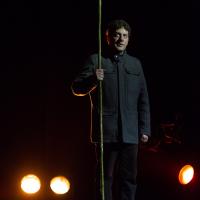
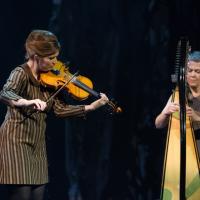
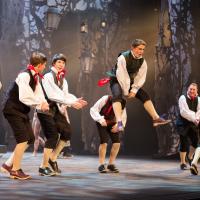
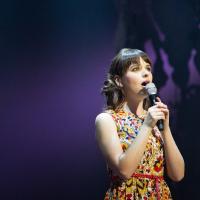
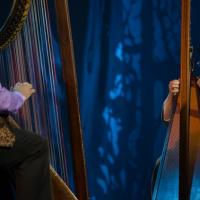
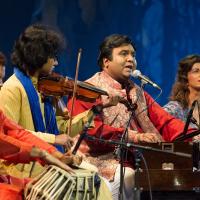
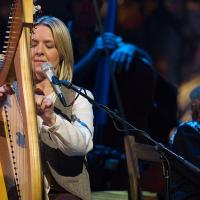

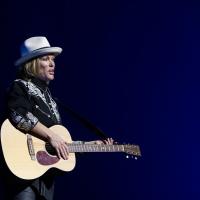
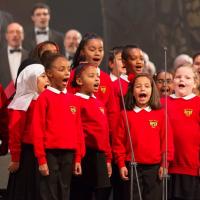
Add comment